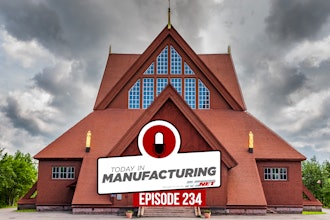In late 2017, European aerospace giant Airbus, along with jet engine maker Rolls-Royce and industrial tech giant Siemens, unveiled a plan to develop a hybrid passenger plane in hopes of curbing air travel’s environmental impact.
More than two years later, the backers of the E-Fan X credited the initiative with a slew of technological and logistical advancements.
But they also came to the same conclusion: that other research and development efforts should take precedence over the hybrid project. Airbus and Rolls-Royce executives this week announced the project was coming to an end.
The E-Fan X project sought to replace one of four engines on a BAe 146 jet with an electric turbofan in a demonstrator plane by 2020. A 2-megawatt electric motor would power the engine, and, if all went well, the companies believed a second fan could be converted to electricity as well.
But Rolls-Royce officials said all parties agreed that putting the demonstrator plane in the air for a test flight was not necessary at present.
Instead, the companies vowed to continue working toward reducing aviation emissions with help from the advancements made in the hybrid effort, including a new 2.5-megawatt generator about the size of a beer keg.
The aviation industry was particularly hard-hit by the coronavirus pandemic. Airbus slashed production by about a third as the crisis all but shut down air travel, and its chief executive said the industry is likely to look very different even after the outbreak passes.
But officials said their efforts to “decarbonize” the skies would continue. Airbus’ chief technology officials said “there’s no world in which the future of air travel is not a sustainable one.”






















